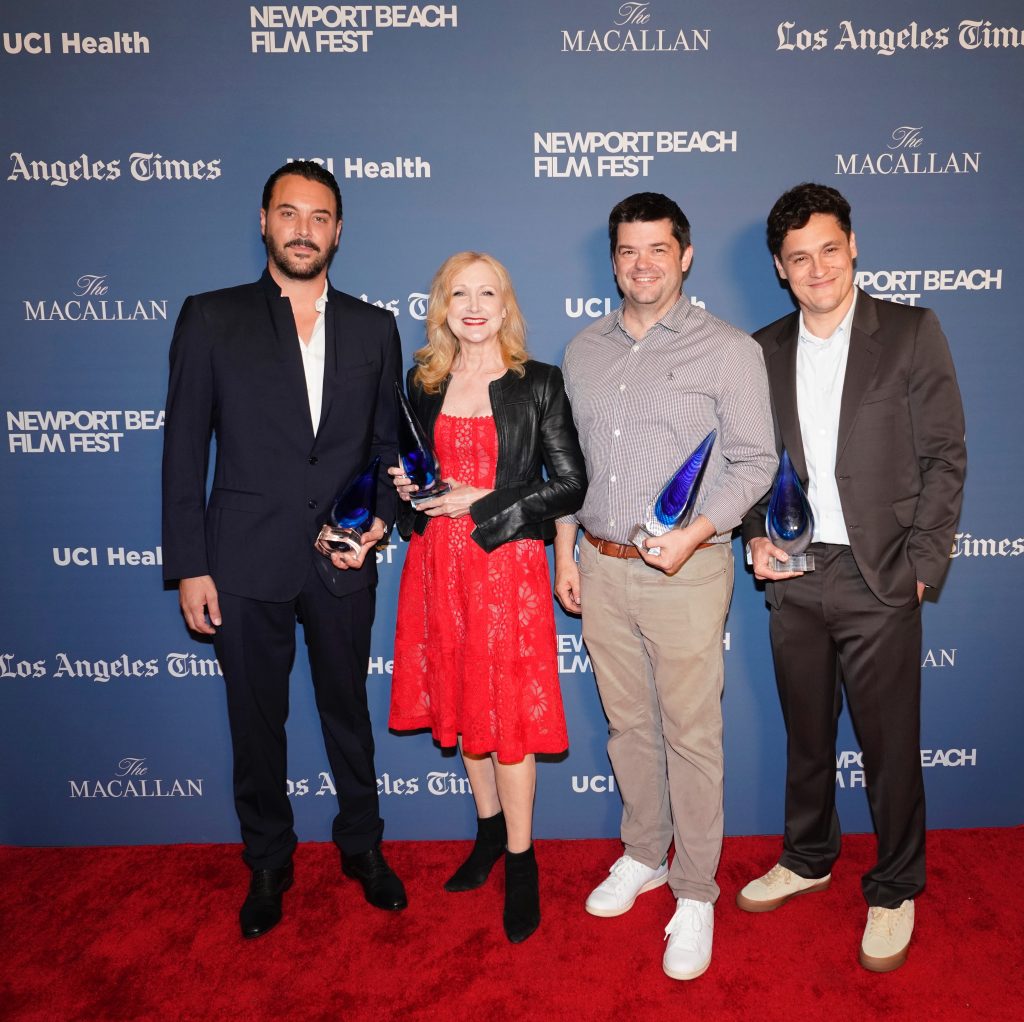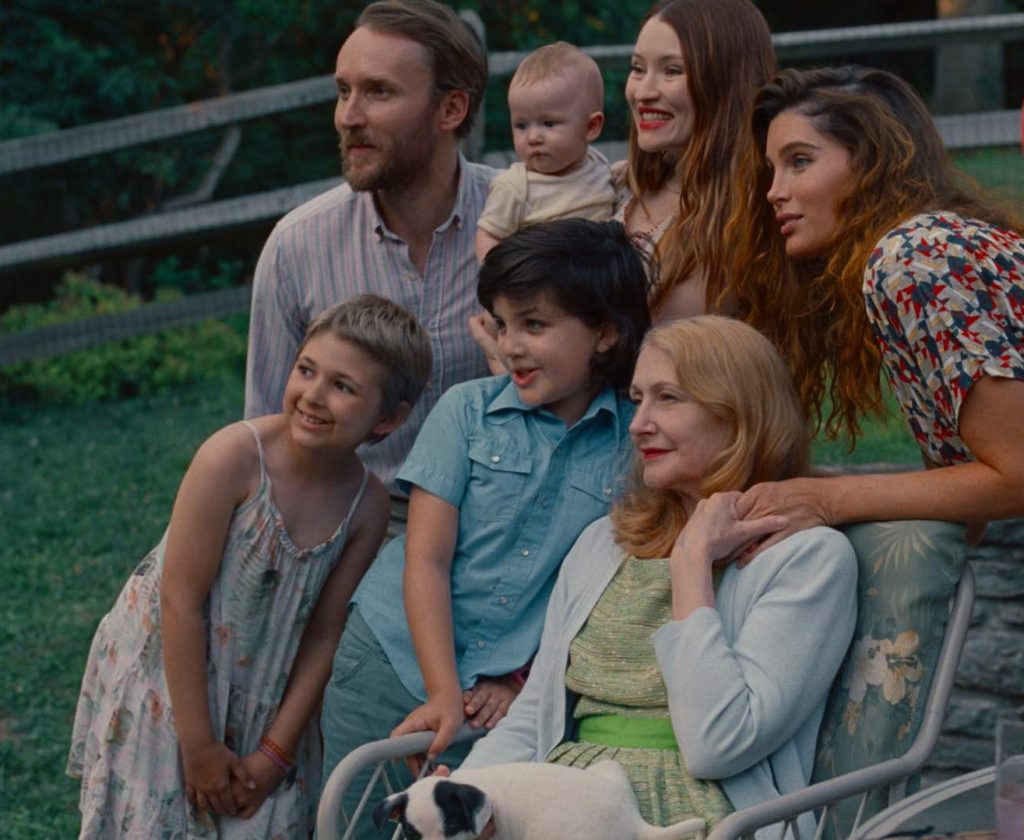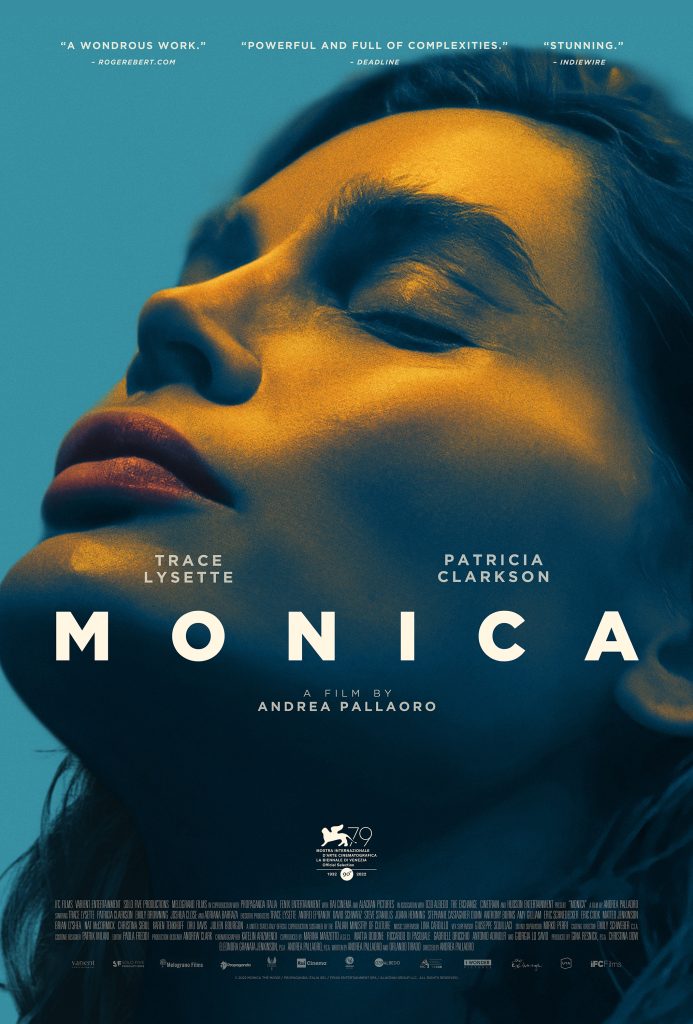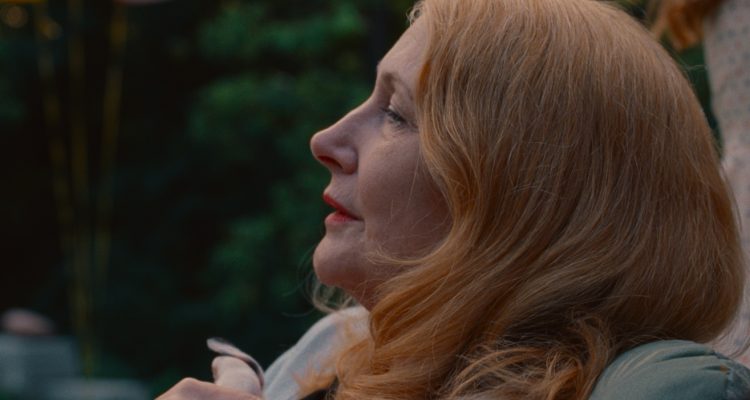Patricia Clarkson is back in the awards race with her courageously vulnerable performance as Eugenia in IFC FIlms’ Monica. In the film, Clarkson plays the terminally ill matriarch of a family whose daughter, who is transgender, fled her childhood home during her teenage years. The mother and daughter, Eugenia (Clarkson) and Monica (Trace Lysette), must confront their broken relationship over the course of Eugenia’s final weeks.
From the IFC Films:
“Monica is an intimate portrait of a woman who returns home after a long absence to confront the wounds of her past. Reconnecting with her mother (Patricia Clarkson) and the rest of her family for the first time since leaving as a teenager, Monica (Trace Lysette) embarks on a path of healing and acceptance. The film delves into Monica’s internal world and state of mind, her pain and fears, her needs and desires, to explore the universal themes of abandonment and forgiveness.”
Lysette and Clarkson are both astonishing in their roles and the buzz is circulating widely among critics groups as voting commences in the coming weeks.
Clarkson’s performance remains a favorite of many film pundits, with The Hollywood Reporter’s Scott Feinberg placing her on his “Feinberg Forecast” list for Supporting Actress contenders.
Clarkson embodies the vulnerability required for Eugenia with a withering grace and jarring accuracy that is deeply impactful and resonating with the audience. The terminally-ill mother endures the indignities of a deteriorating physical and mental state amid splitting headaches triggered by her brain tumor’s resurgence.
Garnering many festival accolades, including an AFI Fest Official Selection, director Andrea Pallaoro skillfully showcases his unique vision for the film from the opening frames of Monica. As it turns out, the film is a deeply personal journey for the director.
“During the past few years my mother’s illness has compelled me to confront my past and the psychological effects of abandonment,” shares Pallaoro. “Treading between the interior and exterior, the emotional and physical, Monica explores the complexities of self-worth, the deep-rooted consequences of rejection and the lengths we go to heal our wounds.”
A previous Academy Award nominee, Clarkson has collected Golden Globe and Critics Choice awards for her work on HBO’s “Sharp Objects” as well as two Emmy awards (“State of the Union,” “Six Feet Under”) in recent years. With Monica, Clarkson is showcasing a command of her craft that is deserving of strong consideration in a year of incredible female stories in film.
Clarkson was honored at the Newport Beach Film Festival this fall with the Artist of Distinction Award. With Monica receiving a coveted SAG interim agreement, Clarkson has been able to speak about her work on the independent film throughout the strike.

Clarkson spoke to Awards Focus from her home city of New Orleans, visiting her own mother who had just received a prestigious award from the French Quarter for her service to the city. Clarkson delved into the intense period of shooting Monica, witnessing the strong reaction from her family, and capturing the incredibly complex character of Eugenia.
Awards Focus: How did this project first get on your radar, were you looking to do something that required this level of vulnerability?
Patricia Clarkson: I had met Andrea Pallaoro years ago and we’d talking about wanting to work together. Years later I get the call saying Andrea Pallaoro has offered you the mother role in his new film after casting Trace Lysette.
I didn’t know anything about the project, I got the script sent over and it’s probably one of the fastest times I’ve said, “Yes,” outside when Martin Scorsese offered me Shutter Island. I read it at two o’clock on a Monday and by early evening I was onboard. It wasn’t lost on me that an exceptional transgender actress would be the lead in this film and my scene partner.
The mother was a very challenging part, a character robbed of her body and her words, and it was something I was excited to take on and it’s become a highlight of my career.
AF: The decision to have her illness linked to a terminal brain tumor in the script, and to signify that the cancer has been an ongoing battle, was a really strong choice as opposed to dementia suddenly setting in for Eugenia.
Did you really dig into that element of the script and construct your own backstory of her struggle with radiation, chemotherapy, and ultimately acceptance?
Clarkson: What kind of woman was she? She’d lost her child who left home as a teenager and then she’s faced a recurrence of brain cancer, which is very hard to defeat. I really dialed in on the physical incapacitation of the role, not so much mentally inept, but mentally challenged.
The brain cancer can rob you of anything at anytime, suddenly your eyes or your legs fail, so we decided that the disease would take Eugenia down, but not out during filming.
On the set, it was funny because people would instinctively go to help me between takes, not realizing that as Patty I was fine, but embodying the character’s physicality put them in a frame of mind that I needed help.
AF: It’s a very nice compliment for your performance.
Clarkson: Well, thank you, when I came to New Orleans to show this film to my sisters and mother, I was surprised by how devastated they were. They found it very hard to watch me in this role, seeing me as this woman in the final throes of death.
My sisters were like, “If you ever do that again, please don’t invite us,” and I started warning friends after that about the emotional weight of the film and my scenes. The amount of texts I get daily about the film has been nice. Monica packs a punch and it’s important to make films that aren’t “easy” and films that tackle big subjects without shying away from the reality of the circumstances.
AF: You capture the glaze of the character with a jarring accuracy, which is such a difficult state to capture as opposed to being in a state of confusion, which is often the choice made by an actor.
Clarkson: Thank you, that means the world to me and this part of Eugenia was one of the most challenging of my career. It was so difficult to get this right, and it was very important to me that this came across as a woman who was losing a battle… she made the decision to not go back for another round of invasive treatment.
So you have those elements that inform her mental state, and I personally think that choice stems from the loss of her child, Monica (Lysette), which she never recovered from her leaving home.
Even though she has a beautiful son, daughter-in-law, and grandkids, that hole is still in her and the toll it took on her is part of that glaze you mentioned. I remember when filming, I would wake up in the morning and give myself a pep talk to make it through a day of filming as this woman.
AF: There were some great directing choices, and I think back to when Eugenia is asking “Who Are You?” and the coverage isn’t on Eugenia. To me, the camera is highlighting that she’s not “there” mentally at that moment, and as a result we don’t see her in the frame.
Clarkson: With Andrea, it’s as much about what’s not in the frame as what is in the frame. The whole film is very intimate in feeling without 5,000 closeups and there’s not a lot of cutting, he likes to stay with his actors in the moment.

AF: How long was the shoot for Monica and how difficult was it to get the interim SAG Agreement to discuss the project during the strike?
Clarkson: I want to say a big thank you to SAG AFTRA for allowing us to talk about this very independent film, and that was certainly lucky for us. Truthfully, we shot this film for no money and no time, we all lived at a boutique hotel in Cincinnati for about six weeks… our cast and my dog, Izzy, who has since passed.
Andrea got to know Izzy as we were raising the money for the film and Andrea decided that we should put her in the film. I miss her deeply, but I’m glad that she lives on through the film.
AF: We have to discuss the bathtub scene, which is a bare scene in every sense of the phrase. What was your first reaction when you read that in the script and what did it mean for you as Eugenia and having that help and comfort from Monica?
Clarkson: When i first read it I saw the beauty in it, and how the scene shows forgiveness and love and family. This mother is able to die with the love of her daughter and her daughter gets to see that love for, after a very painful separation.
It’s all communicated in that scene, where I’m naked in the bathtub and we closed down the set that day. Everyone was very emotional off camera and we had to stop after the first take because of the noise of the crew getting choked up in the background.
This film lived so deeply inside of all of us and the journey is hard to encapsulate in words… truly unique in every sense.
AF: The journey is far from over, we’ve got many awards ceremonies coming up with your acting peers, critics, and the Academy.
Clarkson: Well, I’m so proud of this beautiful film and we’ll keep our fingers crossed, everybody needs a little luck when you don’t have a big budget film. We’re just grateful to everyone who sees it, and thanks again to SAG AFTRA for supporting us with the interim agreement.
Monica is available on AMC+ as well as online for purchase or rental.



